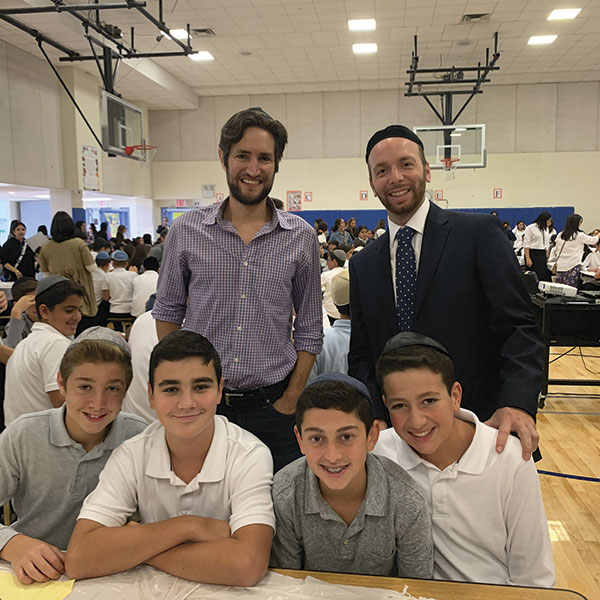How do we get our kids to put their phones down? It’s a good question, however are they the only ones that need to take a break from the Internet? The reality is that we are all attached to our devices. Our kids are not the only guilty parties. Social media, and other websites have become a way of life, and to many of us, even an addiction. While acknowledging that technology is our future and that it enhances our lives in so many ways, a healthy balance must be established.
Managing that fine line between too much usage and adequate/safe usage is what led a group of Magen David Yeshivah mothers—along with the PTA, faculty, and administration—to tackle this issue head on.

The students were overusing their devices, completely hooked on gaming, Instagram and Snapchat. The team decided that the time had come to take a community-wide stance. If we work together as a community, we can form healthy relationships with our devices and channel our tech use in a positive way.
And thus WeConnect was born. The tech awareness initiative officially launched on September 23rd with a special program for parents and students in grades 6 to 8. There was not an empty seat in the room—it was clear that this was important to everyone.
Famed psychologist and Ted Talk speaker Adam Alter PhD began the program by explaining the dangers of technology overuse and how rapidly the usage statistics have changed. (TED Talks are influential videos from expert speakers on education, business, science, tech, and more.) He spoke of the strategic ways that large tech companies like Netflix and Instagram use to keep us hooked (think auto play, and infinite scroll).
They make it exceedingly difficult to prioritize our white space. (White space represents the part of our day that’s left after we’ve spent time working, sleeping, and eating.) Our white space is what defines us as people, it’s where creativity thrives, hobbies are developed, and individuality is formed. He went on to offer tips and tools to help the audience develop a safer relationship with technology. He mentioned setting time limits, keeping devices tucked away at mealtimes and charging our phones outside of the bedroom.
The presentation was eye-opening. Afterwards, the WeConnect committee, led by Vicky Bawabeh, Shirley Feldman, and faculty advisor Helene Palacci, felt it critical to put these steps and tools to use right away with a parent-child workshop led by trained Magen David teachers. The goal was not only to help students become aware of their device use, but also to motivate them to come up with their own ideas to help strike the perfect balance.
The students clearly understood that both their family and their school would support them in this mission, and were eager to take the next steps. Magen David, in collaboration with SAFE, has already implemented WeConnect programming into the children’s curriculum, and the response has been phenomenal. The children are taking initiative, and motivating each other to disconnect more often.
The WeConnect team is currently working on new student-driven programming, and is already seeing some impressive first steps towards tackling this ever present challenge.